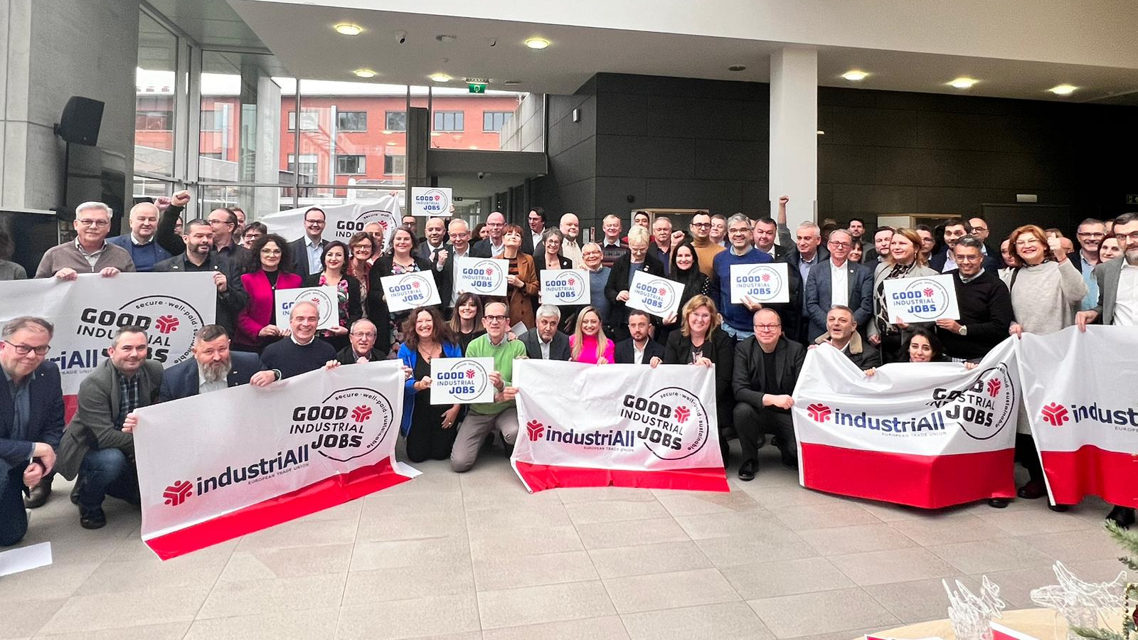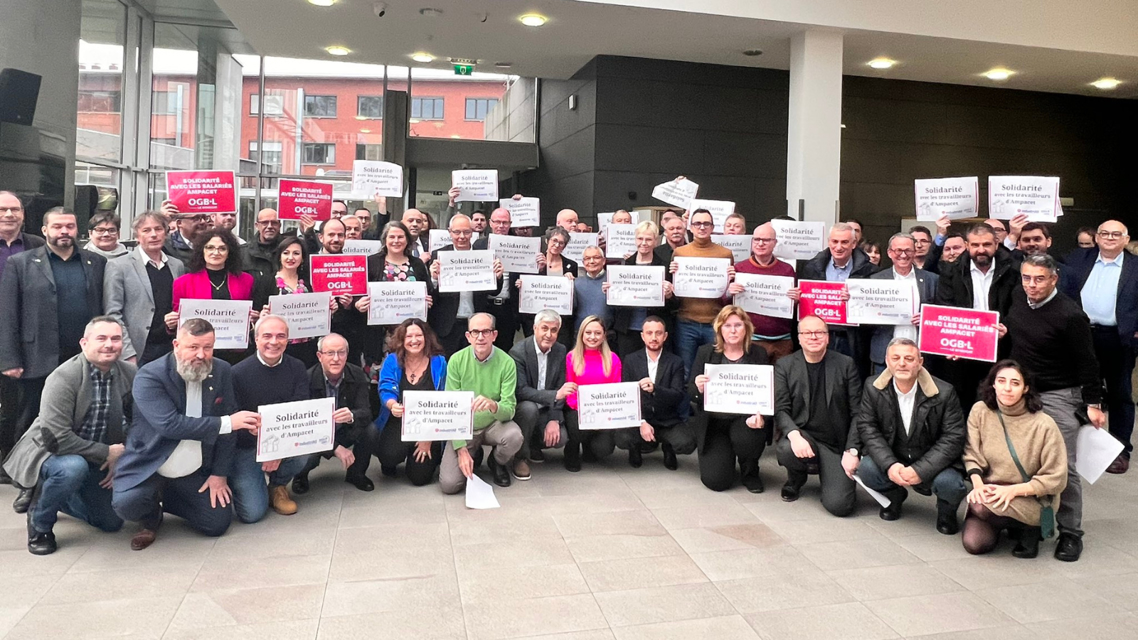Trade union leaders from industriAll Europe's affiliates met for two days to review the organisation's activities, discuss the current political context and the state of European industry and industrial jobs. Highlights of the meeting included the passing of a statement on the current situation in Israel and Palestine and a resolution calling for collective bargaining for Tesla workers in Sweden.
The ongoing energy price crisis for both domestic consumers and industry, the threat of the return of austerity, as well as the cost of living crisis, continue to cause serious concern. Reduced purchasing power remains a problem, as does the distribution of wealth, where dividends are rising but wages are not. All this is helping to pave the way for the far right, which is capitalising on the fears of citizens and workers worried about their jobs.
Strong support was therefore given to industriAll Europe's campaign for good industrial jobs, soon to enter its second phase, which will set out our demands and expectations for the EU elections. It was affirmed that trade unions must mobilise their members to vote in the forthcoming EU elections, which could be crucial in defending workers' rights.
Executive Committee members expressed concern that energy prices are weakening economies and putting jobs at risk. There was strong agreement on the need for action that meets climate targets but does not lead to deindustrialisation. Affordable energy supplies and improved energy infrastructures are needed for industry and to maintain and create good jobs in Europe. At the same time, there should be no public investment and subsidies without social conditions and worker participation. European solutions are needed, based on solidarity and avoiding competition between Member States. The Executive Committee expressed its solidarity with striking Greek workers at Helleniq Energy, opposing privatisation.
The Executive Committee took a firm stance against companies refusing collective bargaining, notably at Ampacet in Luxembourg and Tesla in Sweden. A resolution calling for collective bargaining for Tesla workers in Sweden was passed. Marie Nielson, President of IF Metall, reported that the union is preparing for a long strike. They are determined to take as long as necessary because it is inconceivable that a company in a growing sector that is important for the green transition, should remain without a collective agreement. And this in a country where wages are based on agreements, not legislation.
The Executive Committee supported unions in Bosnia-Herzegovina who are fighting attempts by the national government to turn the minimum wage into a minimum income. Announced increases in the minimum wage will be accompanied by a daily meal allowance and holiday pay. The unions believe that this would turn the minimum wage into a minimum income and would not improve purchasing power. Furthermore, the new rate would not be legally binding on employers and unions would have to demand it at company level. Solidarity was expressed for striking workers at ArcelorMittal Zenica.
The Executive Committee also discussed the impact of Artificial Intelligence (AI) on jobs. IndustriAll Europe was tasked to continue working on a trade union strategy on AI and digital technologies, addressing the need for ethical rules, the protection of personal data, the impact on the quality and quantity of jobs and how trade unions negotiate on AI. Unions clearly need to increase their expertise to assess the technology and its impact.
The Secretariat presented a comprehensive report on its activities, highlighting also that industriAll Europe's approach to working is increasingly focused on thematic teams and the integration of networks and committees to look at issues from many different angles.
Finally, the Executive Committee meeting was an opportunity to express a heartfelt farewell to Luc Triangle, former General Secretary of industriAll Europe, who was elected General Secretary of the International Trade Union Confederation in October. It was agreed to open a call for nominations for the now vacant post of General Secretary until 7 February. Until a new General Secretary is appointed, the organisation will continue to be jointly led by Deputy General Secretaries Isabelle Barthès and Judith Kirton-Darling.

